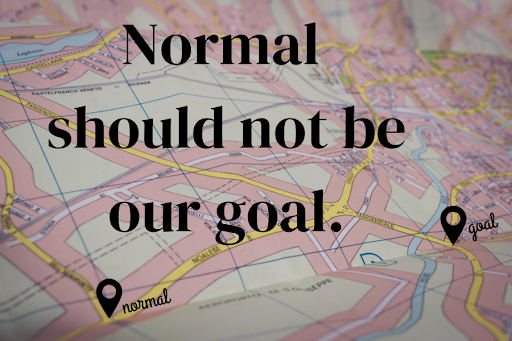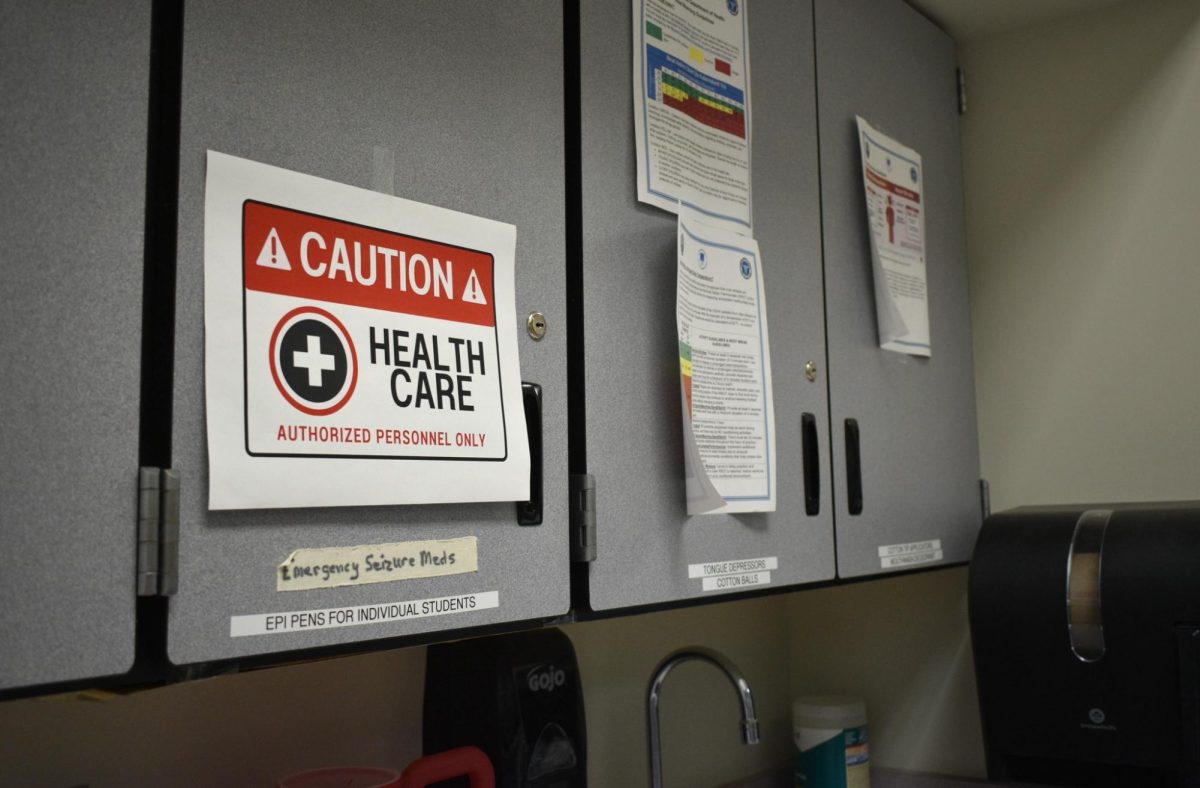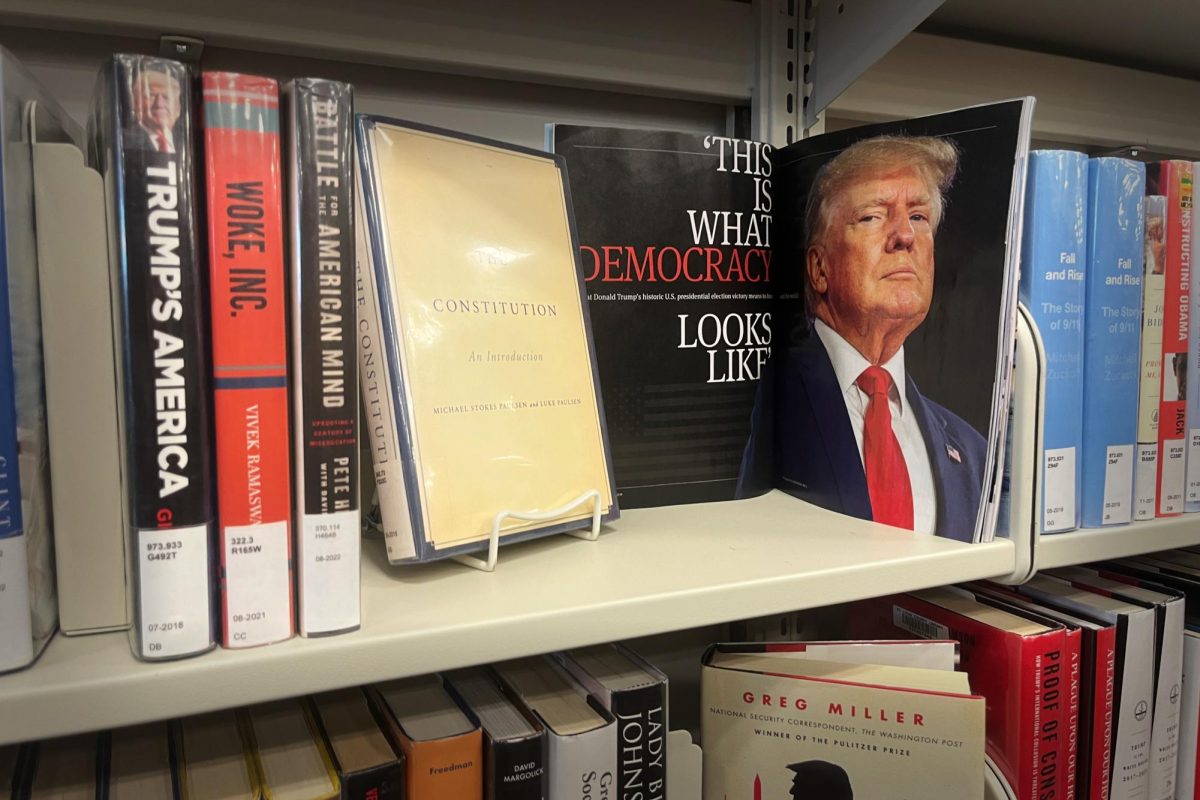
Since the pandemic began in March 2020, we have all anxiously awaited a return to any semblance of normalcy. “Getting back to normal” is a phrase that has been exhausted in conversation, a goal that always seems just out of reach. Yet, a question has arisen from this abnormal situation: should normal really be our goal?
Normalcy seems like a natural benchmark to work towards when life seems anything but. Then, seemingly out of nowhere, we were stripped of all routines, a majority of human contact outside of our family and the activities that made up our daily lives. We can all agree that this pandemic felt unprecedented, and it’s only fair to be desperate to return to life the way we once knew it.
However, as we make efforts to build ourselves back up across the globe, we are presented with a unique opportunity. Very few times in history have we experienced a global event that devastated us so tremendously, and while tragic, this also means that very few times have we had a clean slate. As we begin efforts to put society back together, it is crucial to consider whether returning to our previous ways of life is truly the right goal to have.
The pandemic had a dramatic effect on the human way of life and also exposed serious systemic flaws worldwide. In a dual effect, we saw the deep-rooted issues in both our individual and collective lives exposed at a severely heightened level. Our world came to a crashing halt, but this pause may have been exactly what we needed to reconsider the way that our society functions as a whole.
Individually
Binging Netflix and messing up our sleep schedules was probably a universal experience during quarantine. However, between these not-so-favorable habits, many took the abundance of time to embrace passions. Whether it was digging your sewing machine out of the back of your closet or trying as many banana bread recipes as your ingredients would allow, many rediscovered old hobbies or set forth to build new ones amid unnatural times in a Renaissance-esque way.
Rather than a daily rinse-and-repeat routine, many of us witnessed ourselves thriving in a way we had never seen before. Many took the opportunity to try something new, relieved of the crippling fear of failure. The constant watching eyes of society disappeared, if only for a moment, and the ability to be our true selves no longer seemed so out of reach. We had a seemingly endless supply of time and this abundance was exactly what we needed to function the way that we are supposed to.
It may have taken a global pandemic for society to escape from the grips of comparison and toxic productivity—to an extent—but this situation taught us something. We should not be shackled to a routine, living out a schedule because some outside force said that that is how we are supposed to live. To erase this personal development would be to erase ourselves.
Despite how simple it would be to return to routine, for the sake of ourselves and the human race as a whole, we must harness this newfound mindset to become a healthier form of society. We should view each day as a new opportunity to grow. With the ability to rebuild society right in our grasp, now is the key transitional moment to make the changes we’ve been lacking for so long.
Collectively
The pandemic undoubtedly exposed some flaws within our current way of life, but it also inflamed many deep-rooted systemic flaws globally, nationally and locally. These past few years, we have seen racial protests across the world, demanding equality for all. We have seen political turmoil as politicians force polarization upon us, even though we agree on more than we know. We have even seen harsh disagreements within our community over seemingly warranted public policy. It is no coincidence that these breakdowns occurred in quick succession during the COVID-19 pandemic.
When COVID-19 stopped our daily life in its tracks, many of us were forced to open our eyes to the issues we have in our world. Returning to “normal” could bury the efforts that so many fought for just months ago. Although our own lives may transition back into a regular routine, these issues stay stagnant, awaiting action and attention. It is imperative that we do not return to normal in a world where for some people, “normal” means being discriminated against daily while others turn a blind eye to the issue, or where normal means unsustainable expectations for our time, labor and productivity. We cannot close our eyes to reality again; we must become active participants in our world, not passive viewers.
While the COVID-19 pandemic exposed many of our social, political and economic weaknesses, it is also true that it has revealed the power that ordinary people possess in our society. During anything but normal times, we witnessed hordes of people coming together to help those in need. We experienced incredible resiliency in the wake of adversity. We felt our collective strength like never before. It is time to use these strengths to improve the world around us. Our “normal” form of society was already ripped apart nearly two years ago. Trying to haphazardly stitch back together the pieces of an overworked, inequality-ridden and generally unsatisfied society would ruin everything we have worked for.
Now, it is time we build something new. Instead of succumbing to the lazy desire to “return to normal,” we must act deliberately and with intent. Do we really want to go back to the way things were? We have the opportunity to grow, to prioritize what should matter in our lives. Never before have we had such an opportunity for rest and reflection, and we should recognize that such an occurrence doesn’t have to come with a global pandemic. We must be allowed to step back from the constant work and effort we are subjected to, and the pandemic has shown us what is possible when we have this chance.
On a systemic scale, the pandemic has shown us what needs fixing across the world, the country and even within Parkway. We must embrace, change and shift our goals as we begin to rebuild after unprecedented years. Will we be loyal to the same oppressive systems that have chained us to an unequal society? That has been the standard throughout our lives. It is not enough to recognize the struggles that oppressed groups have faced in our “normal” society as we strive to return to that society despite the costs. Normal should not be our goal.

![Leaning on the podium, superintendent Melissa Schneider speaks to Parkway journalism students during a press conference. Schneider joined Parkway in July after working in the Thompson School District in Colorado. “My plan [to bond with students] is to get things on my calendar as much as possible. For example, being in [classes] is very special to me. I am trying to be opportunistic [meeting] kids [and] being in [the school] buildings. I have all the sports schedules and the fine arts schedules on my calendar, so that when I'm available, I can get to them,” Schneider said.](https://pwestpathfinder.com/wp-content/uploads/2025/09/IMG_5425-1200x943.jpeg)


![Red, white and blue, the American flag holds the values of our democracy. The fight that we once endured has returned, as student journalists and senior correspondents across the country are losing their voices due to government control. “[Are] the White House and [the] government limiting free speech [and] freedom of the press? Yes [they are],” chief communications officer of the Parkway School District and former journalist Elisa Tomich said.](https://pwestpathfinder.com/wp-content/uploads/2025/03/Untitled-design-14.jpg)
![A board in the Parkway West counseling department displays pennants of selective universities. With a wide range of students interested in attending, it’s important that these schools have clear priorities when deciding who to admit. “[Washington University] had the major that I wanted, psychology, philosophy, neuroscience. That's a holistic study of the brain, and [WashU is] the only college in the world that offers that. That's the main reason I wanted to go; I got into that program,” senior Dima Layth said.](https://pwestpathfinder.com/wp-content/uploads/2025/02/Flag-1.png)

![Within the U.S., the busiest shopping period of the year is Cyber Week, the time from Thanksgiving through Black Friday and Cyber Monday. This year, shoppers spent $13.3 billion on Cyber Monday, which is a 7.3% year-over-year increase from 2023. “When I was younger, I would always be out with my mom getting Christmas gifts or just shopping in general. Now, as she has gotten older, I've noticed [that almost] every day, I'll open the front door and there's three packages that my mom has ordered. Part of that is she just doesn't always have the time to go to a store for 30 minutes to an hour, but the other part is when she gets bored, she has easy access to [shopping],” junior Grace Garetson said.](https://pwestpathfinder.com/wp-content/uploads/2024/12/DSC_0249.JPG-1200x801.jpg)

![Senior Sally Peters stands in the history hallway, contemplating her choices in the 2024 United States and Missouri elections on Nov. 5. As a member of Diplomacy Club, Peters has discussed key candidates and issues in contemporary American politics. “[As students], we're starting to become adults. We're realizing how much the policies that are enforced and the laws that make it through the House and Senate are starting to affect us. [Opportunities such as] AP [U.S.Government] and Diplomacy Club [make elections feel] a lot more real,” Diplomacy Club vice president and senior Nidhisha Pejathaya said.](https://pwestpathfinder.com/wp-content/uploads/2024/10/Flag-1-1.png)
![Mounting school pressure can leave many students overworked and overstressed. Schools must give students the necessary resources to help assuage student mental health issues and prevent the development of serious crises. “The biggest thing [schools] can do [to protect student mental health] is offer more time [to do work], like a study hall, or offer more support from teachers so that students don't feel stressed out and can get help in areas that they need,” senior Bhavya Gupta said.](https://pwestpathfinder.com/wp-content/uploads/2024/09/unnamed-4.jpg)
![Focused on providing exceptional service, sophomore Darsh Mahapatra carefully cleans the door of a customer’s car. Mahapatra has always believed his customers deserve nothing less than the best. “[If] they’re trusting us with their car and our service, then I am convinced that they deserve our 100 percent effort and beyond,” Mahapatra said.](https://pwestpathfinder.com/wp-content/uploads/2025/10/DSC_0018-1200x800.jpg)
![Sophomore Aleix Pi de Cabanyes Navarro (left) finishes up a soccer game while junior Ava Muench (right) warms up for cross country practice. The two came to Parkway West High School as exchange students for the 2025-2026 school year. “The goal for the [exchange] program is to provide opportunities for both Parkway students and our international exchange students to learn about other cultures, build connections and become confident, capable, curious and caring — Parkway’s Four C’s — in the process,” Exchange Program Lead Lauren Farrelly said.](https://pwestpathfinder.com/wp-content/uploads/2025/10/Feature-Photo-1200x800.png)
![Gazing across the stage, sophomore Alexis Monteleone performs in the school theater. The Monteleone family’s band “Monte and the Machine” has been releasing music since 2012, but Alexis started her own solo career in 2024 with the release of her first single, Crying Skies. “My whole family is very musical, [and I especially] love writing [songs with them],” Monteleone said.](https://pwestpathfinder.com/wp-content/uploads/2025/09/DSC7463-1200x798.jpg)

![Leaping through the air, senior Tyler Watts celebrates his first goal of the season, which put the Longhorns up 1-0 against the Lafayette Lancers. Watts decided to play soccer for West for his last year of high school and secured a spot on the varsity roster. “[Playing soccer for West] is something I had always dreamed of, but hadn’t really had a good opportunity to do until now. It’s [really] fun being out [on the field], and I’m glad I decided to join the team. It’s just all about having fun with the boys and enjoying what time we have left together,” Watts said.](https://pwestpathfinder.com/wp-content/uploads/2025/09/DSC_1951-1200x855.jpg)
![Junior Fiona Dye lifts weights in Strength and Conditioning. Now that the Trump administration has instituted policies such as AI deregulation, tariffs and university funding freezes, women may have to work twice as hard to get half as far. "[Trump] wants America to be more divided; he wants to inspire hatred in people,” feminist club member and junior Clara Lazarini said.](https://pwestpathfinder.com/wp-content/uploads/2025/05/Flag.png)
![As the Trump administration cracks down on immigration, it scapegoats many immigrants for the United States’ plights, precipitating a possible genocide. Sophomore Annabella Whiteley moved from the United Kingdom when she was eight. “It’s pretty scary because I’m on a visa. When my visa expires next year, I’m not sure what’s going to happen, especially with [immigration] policies up in the air, so it is a concern for my family,” Whiteley said.](https://pwestpathfinder.com/wp-content/uploads/2025/05/DSC_0077-7copy.jpg)
![Shifting global trade, President Donald Trump’s tariffs are raising concerns about economic stability for the U.S. and other countries alike. “[The tariffs are] going to pose a distinct challenge to the U.S. economy and a challenge to the global economy on the whole because it's going to greatly upset who trades with who and where resources and products are going to come from,” social studies teacher Melvin Trotier said.](https://pwestpathfinder.com/wp-content/uploads/2025/05/MDB_3456-1200x800.jpg)

![Pitching the ball on Apr. 14, senior Henry Wild and his team play against Belleville East. Wild was named scholar athlete of the year by St. Louis Post-Dispatch after maintaining a high cumulative GPA and staying involved with athletics for all of high school. “It’s an amazing honor. I feel very blessed to have the opportunity to represent my school [and] what [it] stands for,” Wild said.](https://pwestpathfinder.com/wp-content/uploads/2025/05/unnamed-6-1200x714.jpg)
